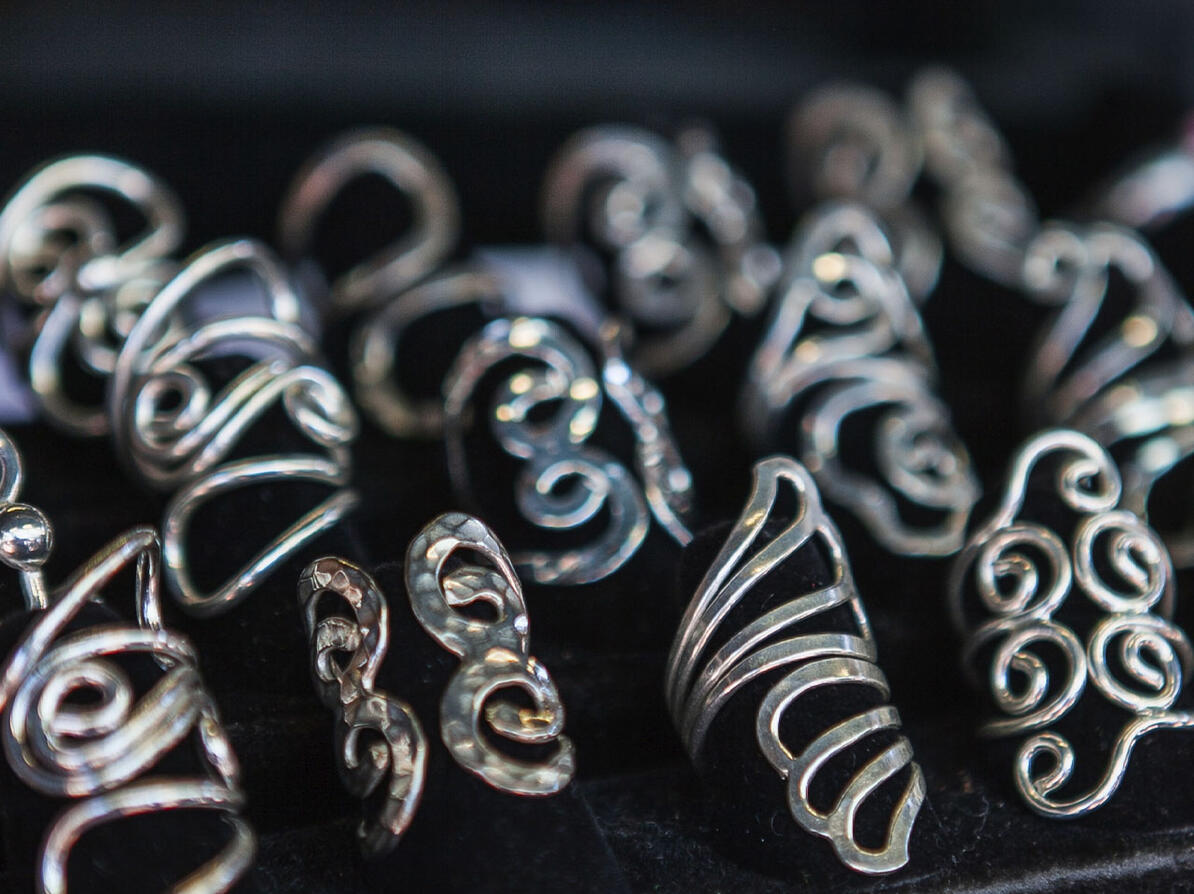Test of cheap jewellery: Nickel release exceeds limit values
Cheap jewellery can release nickel in levels far beyond what is allowed or it may contain excessive amounts of lead and cadmium. Especially the tested jewellery from online marketplaces such as wish.com are not compliant with the EU legislation.

Harmful heavy metals can be found in jewellery
Cheap jewellery is a popular accessory, but it may contain harmful chemicals.
The Danish Consumer Council THINK Chemicals has tested jewellery such as rings, earrings and bracelets for heavy metals in an accredited laboratory. The jewellery was of the “non-precious” kind and was bought in retail chains and in smal Danish shops, as well as through the online platforms ‘Wish’ and ‘Light In The Box’.
The test showed that 7 out of 17 items did not live up to the legal requirements. The test results showed that 6 jewellery released too much nickel, which is allergenic. The testresults exceededs the limit values by 10 to 344 times.
Some of the jewellery also had content of the heavy metals lead and cadmium above the allowed limits.
Chemicals found in jewellery can cause allergy and harm the body
Nickel allergy can be induced by repeated exposure. Once you have developed nickel allergy you will be sensitive to the substance for the rest of your life. Studies have shown that 8 to 18 percent of Europeans have developed nickel allergy.
Nickel allergy causes rash or eczema. In addition to jewellery this can be caused by contact with nickel released from belt buckles, keys or similar ‘metal products’. Also electronic devices such as mobile phones and computers can elicit a reaction.
Harmful heavy metals such as cadmium and lead are accumulated in the body. Lead can harm the nervous system and the development of the brain in children. Cadmium can harm organs, for instance the kidneys.
Do not buy jewellery in web shops outside of the EU
Especially jewellery bought through international web shops placed outside of the EU was problematic. For instance the jewellery bought from wish.com where non-compliant with EU legislation in 4 out of 5 tested items.
One bracelet from Wish contained 38 percent cadmium. This is almost 4,000 times more cadmium than allowed.
Jewellery imported from Asia by Danish shops did also exceed the legal requirements. One piece of jewellery contained 12 percent lead.
Opinions and advices
-
Wish:
“The merchants selling these items have gone against our policy and we will remove these products as soon as possible.”
-
1. Be careful when buying cheap jewellery
- Genuine silver and gold jewellery is preferable
- Do not buy jewellery in web shops outside of the EU, at dubious sellers with private import, or on your holiday outside of EU
- Ask if the jewellery is free from lead, cadmium and nickel
2. Limit your use of ”non-precious” jewellery
Cheap non-precious jewellery may contain harmful heavy metals, that can be released to saliva and sweat. The Danish Environmental Protection Agency recommends consumers to follow these precautions:
- Do not place low cost jewellery in the mouth (or avoid sucking on low cost jewellery)
- Do not wear low cost jewellery on a daily basis.
- Children should only wear low cost jewellery on rare occasions
- Do not wear low cost jewellery while sleeping.
- Do not wear low cost jewellery while doing sports.
3. Lower your risk of getting nickel allergy
- Avoid skin contact with nickel
- Nickel release can be tested with a test kit from the pharmacy
- Stop using your jewellery if you develop a rash
- If you get a persistent rash, consult a doctor
